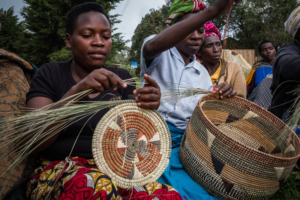Microfinancing Partners in Africa Shows Success

Microfinancing Partners in Africa is a nonprofit that provides microfinance opportunities to people in Sub-Saharan Africa. Its current programs vary in nature. Some examples include giving loans to subsistence farmers to purchase a cow, providing water filtration systems and educating students on microfinance.
Microfinance is an innovative approach to growing the economies of impoverished nations by giving its citizens access to small loans, usually under $200. It is a way for those in poverty to develop a stable income because they do not have access to traditional loans.
Historically, companies have used high-interest rates to take advantage of impoverished people seeking loans. However, agencies like Microfinancing Partners in Africa counter that practice. It offers options that often require recipients to take financial literacy courses and give them loans without requiring collateral. In this way, Microfinancing Partners in Africa works to actively combat poverty within Sub-Saharan Africa. Here are some of its success stories:
Jane Nalwadda
Jane Nalwadda is a woman from Uganda born with an obstetric fistula. Her condition left her unable to have a child with her husband who consequently left her after three years of marriage. The abandonment left Nalwadda without a reliable source of income. She fell into utter despair until a friend recommended the Kitovu hospital to her. There she would be eligible for a free fistula repair surgery program. Here is where Microfinancing Partners in Africa stepped in.
The nonprofit established the microfinance program The Piglet Project. The program helps women make money post-fistula repair by helping them raise and breed pigs, eventually creating a sustainable business. Jane was able to raise $29 with her first litter of pigs, which enabled her to build a better pen. She now has a steady means of making a living and can build a promising future.
Bujugo Village
Bujugo is a tiny village in Tunisia that has clean water accessibility problems. The village received seven water filters from Microfinancing Partners in Africa in 2019. Villagers then received training to use the filters and developed a time table to maximize the amount of village usage. Now, 49 families receive clean drinking water because of this microfinancing program.
Florence Mbaziira and Joseph Mbaziira
Florence and Joseph Mbaziira are an older couple from Uganda who works on a farm with mostly unproductive land. They tirelessly worked on their farm to support themselves and their four grandchildren. By 2014, the family was still living off a small income that came from selling the produce that they grew. Afterward, they turned to the Cow Project.
Microfinancing Partners in Africa created the Cow Project to support farmers through a “living loan.” The Mbaziiras took full advantage of the program and bought a cow for their land. Microfinancing Partners in Africa trained them to use the cow’s manure to increase crop yields. The couple now grows coffee, bananas and seasonal foods. Thanks to microfinancing, the Mbaziiras are able to support their family through their own farming business.
Saida Juma
Saida Juma is a divorced woman with two children living in Tanzania. Previously, she worked as a maid for $5 a month. However, her passions were elsewhere. She had the desire to start selling fish. Juma worked with Microfinancing Partners in Africa to obtain a microloan of $50. With the money, she was able to go into business for a local fisherman by selling fish. Her earnings are enough to support her children as well as send them to school. Her goal is for her children to be well-educated and take over her business when she retires. She also plans to take out another $100 loan soon to buy a fridge to store unsold fish.
All of these people were struggling to survive. Microfinancing Partners in Africa’s varied programs were able to help inspire and empower them to gain a livable income. Microfinancing Partners in Africa helped increase the quality of life for these people and many others, proving that microfinancing is an effective way of fighting poverty.
– Olivia Welsh
Photo: Flickr
